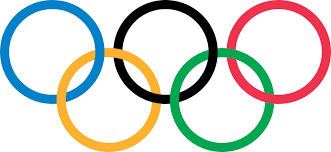
IT seems that the delayed 2020 Olympic Games will go ahead in July in spite of the opposition of a large number of Japanese. Their medical infrastructure is under considerable strain, parts of their country are under a state of emergency, and now there is to be an invasion of sportspersons from all corners of a Covid-19 infected world. The Japanese person in the street must be feeling insulted. Now is a good time to question why the Olympic extravaganza is needed at all.
The modern version introduced by Pierre de Coubertin in 1896 has consistently been billed as a bringing together of the people of the world in a spirit of sporting amity. But it is no more than a contest of one-upmanship between nations and their ideologies. It is true that the Olympics allows small nations a momentary glimpse of global fame (I always look out for the Bahamas where I grew up, which otherwise never appears in the news unless there is a hurricane or similar disaster), but essentially it’s a contest over who can spend the most to acquire medals. Some nations withdraw funding from sports that have poor prospects: so much for participation.
Then there is the International Olympic Committee (IOC). It has the powers of a sovereign state, but no popular mandate or public accountability. It’s not clear what the Japanese government wishes, but in any case only the IOC can cancel the upcoming games. Like South Africa during the 2010 FIFA World Cup, nations cede their sovereignty to a body that has no lasting interest in anything but its own lucrative business.
And that business is to act as the sports desk of global capitalism. International sport is now little more than a commodity served up to billions of consumers sitting in front of screens of various sizes. Any connection there may have been with personal recreation and fitness has long since diminished and in South Africa spending on community sports facilities has all but vanished. For example, the recreation grounds of Pietermaritzburg have either been built on or are in ruin, even used as dump sites; so much for sport for the people.
Covid-19 has accelerated a trend that was already well advanced and venture capital has moved in aggressively on collapsing sports bodies. When I was growing up, branding referred to cattle; now it applies to people, especially those with sporting ability. They are essentially advertising assets for their handlers who bank on making massive profit out of them. Attachment to country has become tenuous as we have seen with cricket’s Indian Premier League. And what happens to individuals when the pressure affects performance? Global capital only wants winners as legions of football managers can attest.
Underlying all of this is the pretence that sport transcends politics, one of the biggest misconceptions in world history. The demand that sport be divorced from politics has always been a conservative deception designed to deflect attention away from racism, sexism, anti-Semitism, Islamophobia and other pathologies of populism. And the IOC turns a blind eye to human rights violations across the board in China, Saudi Arabia, Belarus and a host of other unsavoury, repressive regimes.
Termination of the Olympics would mean deletion of a great deal of hypocrisy. All the codes represented there have their own international competitions; none would disappear. The costing around Olympic Games is always contested and generally a matter of wishful thinking. Host countries claim intangible legacy benefits such as boosts to infrastructure and tourism, but host cities end up with crippling debt and redundant facilities amid revelations of corruption. It is nearly forty years since a summer venue, Los Angeles, managed to avoid debt.
A compromise solution would be to set up a permanent venue in the country in which the Games originated and from which it was expropriated – Greece. That would be more in keeping with the supposed aims of sport, but not of course of the profiteers who drive the system.
- This article was published in the Witness on 6 June 2021.